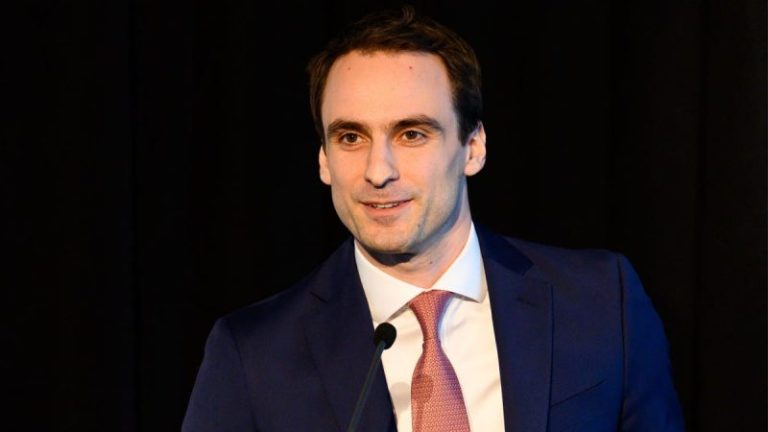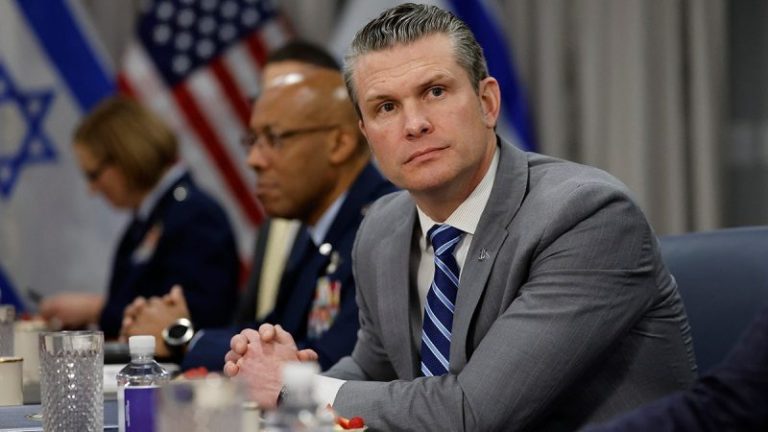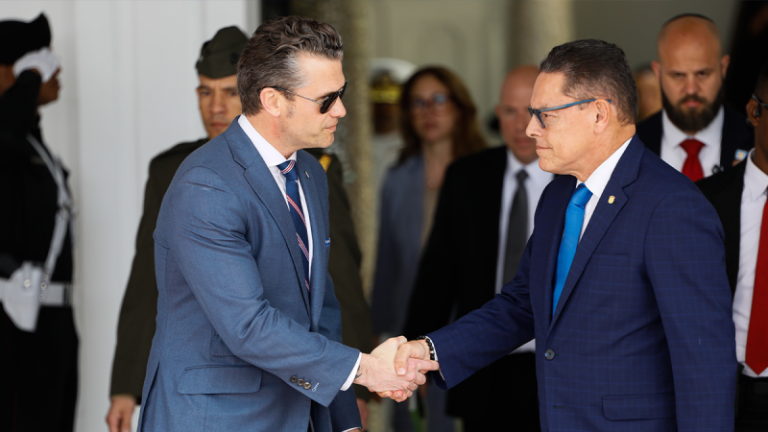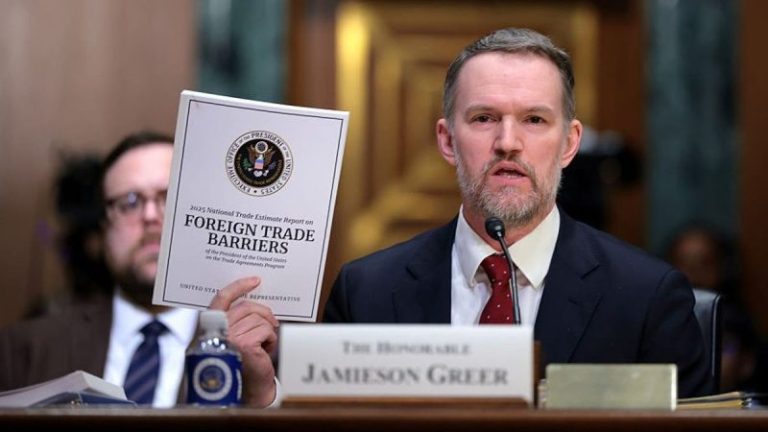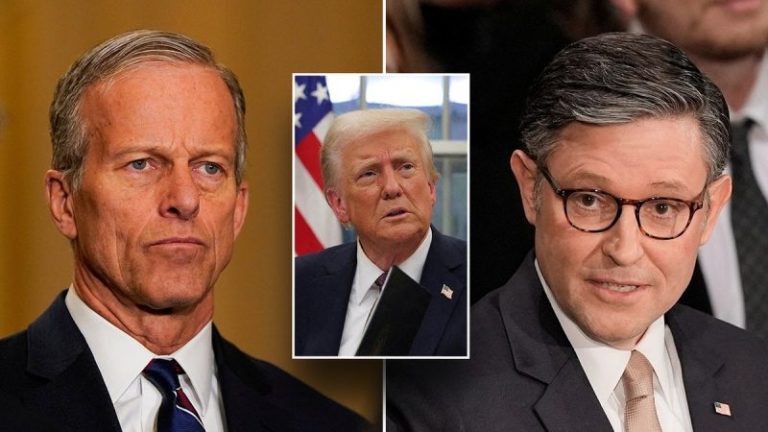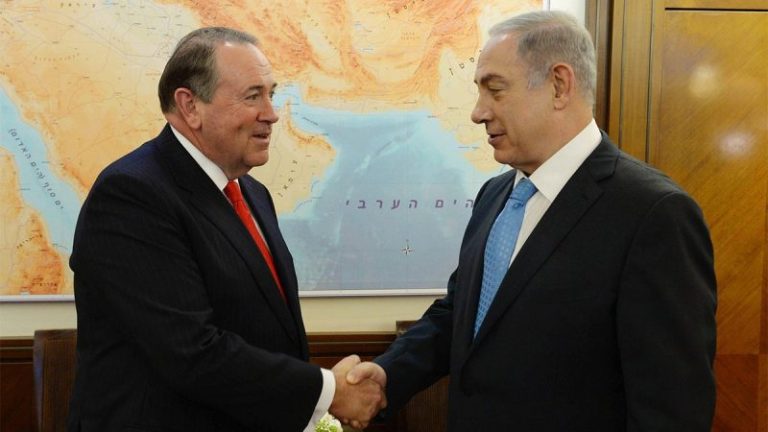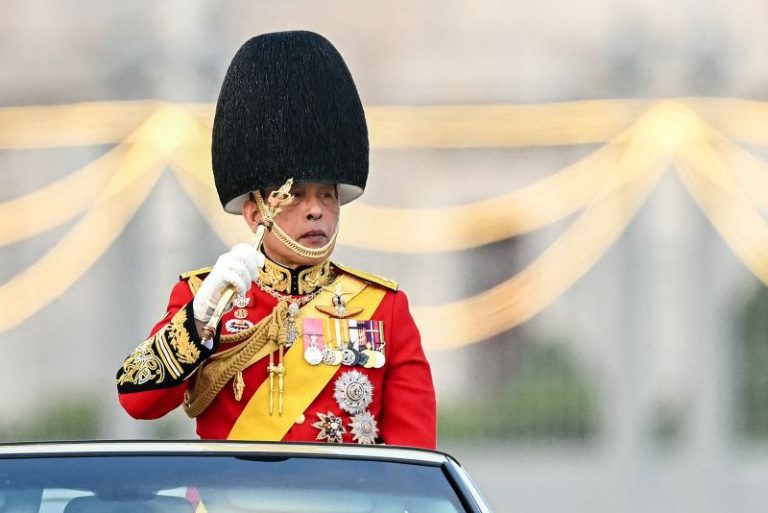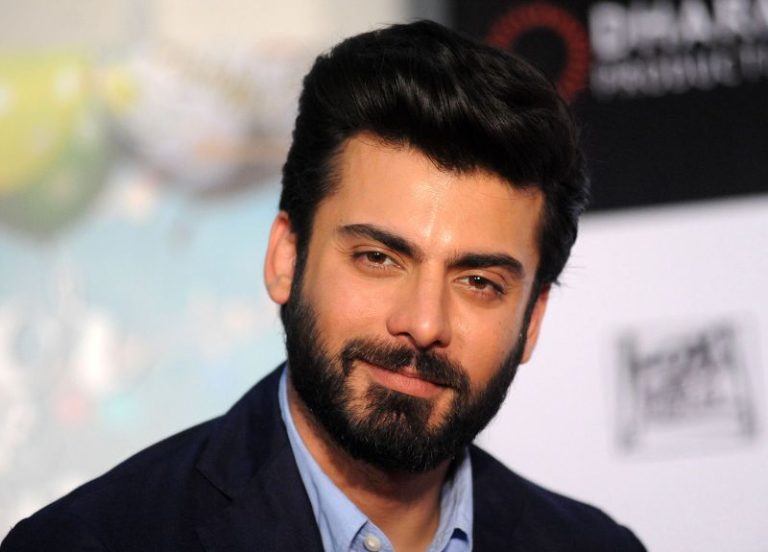China’s innovation in artificial intelligence is ‘accelerating,’ according to Michael Kratsios, director of the White House Office of Science and Technology. He told Fox News Digital that the United States’ ‘promote and protect’ strategy will solidify its standing as the world’s dominant power in AI.
Kratsios, who served as chief technology officer during the first Trump administration, sat for an exclusive interview with Fox News Digital on Monday.
‘The White House in the first Trump administration redefined national tech policy to focus on American leadership in emerging technologies, and those were technologies like artificial intelligence, quantum computing and 5G, [which] were big back then,’ Kratsios said. ‘The president, at that time, signed the executive order prioritizing U.S. leadership in AI, back in 2019 when people weren’t even talking about it.’
‘He recognized that it was critical for the U.S. to lead in AI,’ Kratsios said. ‘We got the ball rolling on what the U.S. national strategy is and how we would win.’
During his first administration, Trump signed the first-ever executive order on AI in 2019. He also took executive action in 2020 to establish the first-ever guidance for federal agency adoption of AI to deliver services to the American people and ‘foster public trust’ in the technology.
But Kratsios said that when former President Joe Biden took office, the attitude of his administration toward AI shifted to ‘one of fear and one of over-regulation.’
‘There was a fixation on what I would call harms, so, spending time and energy thinking about all the things that could go wrong with this technology, versus having a balanced approach, where you try to minimize things that could go poorly, and more importantly, look at ways this technology can transform America for the better,’ Kratsios explained, noting that Biden officials were ‘harms focused,’ which he said was ‘manifested in a lot of the policies that they did, in the way that they were very reticent to applying some of this technology to a lot of the issues that government faced, like how you make agencies more efficient.’
Kratsios reflected on Trump’s AI message during the campaign, saying he ‘made it very clear that we as a country need to win and be dominant in artificial intelligence.’
‘And he acted very decisively,’ Kratsios said, pointing to Trump’s move on his third day in office to direct him and other officials to develop an AI action plan.
‘It was a way to review everything that had been done under the Biden administration and turn the page with an agenda that’s focused on sustaining and ensuring continued U.S. leadership in this particular technology, and that’s what we’ve been working on,’ Kratsios said.
Kratsios explained that the U.S. is ‘the leader’ in AI, specifically when it comes to the ‘three layers of technology,’ which he said are chips or high-end semiconductors, the model itself and the application layer.
‘If you look at all three of those layers, the U.S. is the leader,’ Kratsios said. ‘We have the best chips. We have the best models. And we have the best applications to date.’
But he warned that the Trump administration is ‘seeing the velocity of innovation’ from China.
‘We’re seeing the speed at which the PRC is catching up with us is actually accelerating,’ he explained.
Kratsios referenced DeepSeek, which was released by a Chinese firm earlier in 2025 and develops large language models.
‘I think what DeepSeek revealed is that the Chinese continue to make progress and are trying really hard to catch up with us on those three layers,’ Kratsios said.
But the key to maintaining U.S. dominance in the space is the Trump administration’s ‘promote and protect’ strategy, Kratsios explained.
Kratsios said the Trump administration will ‘promote’ by continuing to accelerate the development of technology and encouraging more Americans, American companies and countries around the world to use that technology.
‘And then on the protect side, what is it that the U.S. has which could be useful to the PRC to accelerate their efforts in AI? We protect that technology from access by the Chinese,’ Kratsios said, pointing to high-end semiconductors and chips that the Chinese ‘shouldn’t have access to, because that would make it easier for them to accelerate their efforts.’
‘How do we speed up innovation here at home and slow down our adversaries?’ Kratsios said.
The answer, Kratsios said, is AI research and development that continues to drive innovation. He also said the Trump administration needs to continue to remove regulations and barriers to AI innovation, and also prepare and train Americans in the workforce to ‘better leverage this technology.’
Kratsios said another step is ensuring that foreign allies partner with the U.S. to ‘make sure that they are also keeping the PRC at bay and that they continue to use the American AI stack.’
‘So, if you’re any country in the world that wants to use AI, you’d want to use an American stack,’ he explained. ‘So we should make it as easy as possible in order for us to export our technology to like-minded partners.’
As for China, Kratsios said the PRC ‘is probably one of the most sophisticated surveillance states in the world, and that is underpinned by their own artificial intelligence technology.’
‘I think the goal of the United States should be to continue to be the dominant power in AI. And there are certain inputs to the development of AI which we can control, and which we would not want the PRC to have access to,’ he said. ‘And the most important pieces are sort of these very high-end chips that they can use to train models, and also certain equipment that would allow them to build their own very high-end chips.’
He added: ‘And if we can kind of continue to make it challenging for them to do that. I think it’ll be the benefit of the U.S.’
Looking ahead, Kratsios echoed the president, saying the U.S. is in the ‘golden age’ and that this special moment in time is ‘underpinned by unbelievable science and technology.’
‘We want to put an American flag on Mars,’ Kratsios said. ‘We want to fly supersonic again. We want drones to be delivering packages around the world. We want AI to be used by American workers to allow them to do their jobs better, safer and faster.’
He added: ‘We have an opportunity to all these things, like so much more, in these four years. And this office is going to be the home for driving that innovation across so many technological domains.’

